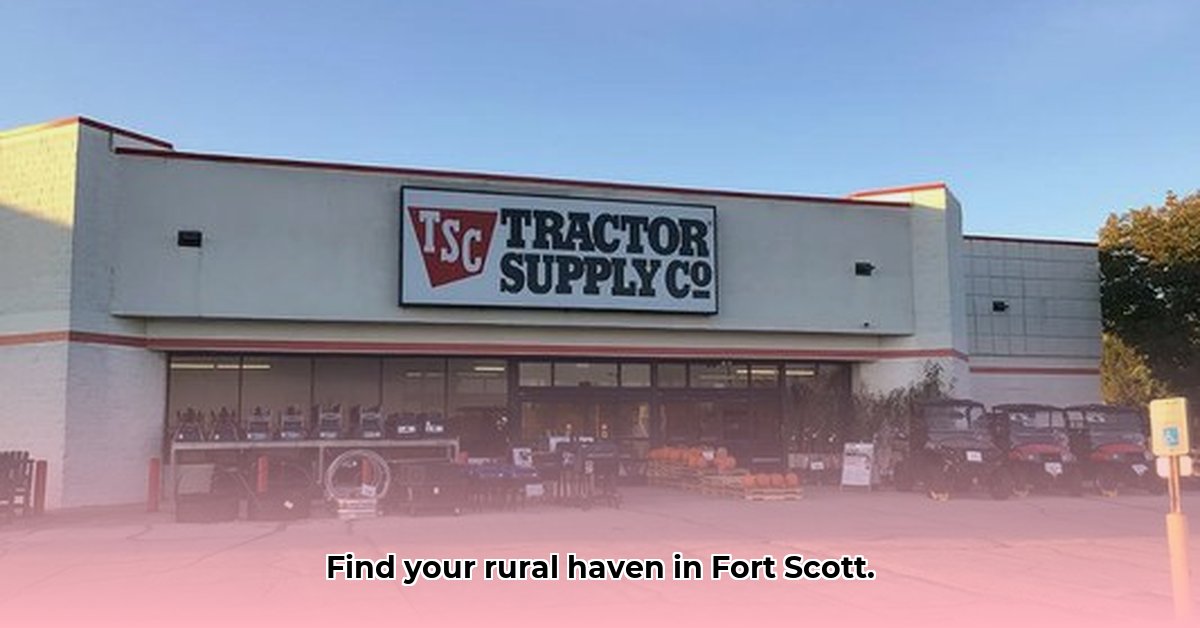
Tractor Supply in Fort Scott: A Community Staple and a Sustainability Opportunity
Tractor Supply Company (TSC) is a well-established presence in Fort Scott, Kansas, serving the needs of farmers, ranchers, and homeowners alike. This article examines TSC's role within the Fort Scott community, focusing specifically on its potential to contribute to sustainable agriculture practices within the Kansas market. While TSC offers a wide array of products, a crucial aspect remains under-examined: its commitment to environmentally friendly operations. For more local information, visit the Fort Scott TSC page.
TSC's Market Reach in Kansas
Tractor Supply boasts a substantial presence across Kansas, operating numerous stores and providing a broad selection of agricultural and household goods. This extensive reach showcases its commitment to serving rural communities. However, a deeper analysis is needed to fully assess TSC’s market share and competitive positioning within the state.
Sustainability: An Unexplored Frontier
A comprehensive analysis of TSC's sustainability initiatives in Kansas is currently hampered by a lack of publicly available data. While specific figures on sustainable product offerings or the overall environmental impact of operations are unavailable, this absence presents both a challenge and a substantial opportunity. The growing consumer demand for eco-friendly practices creates a strong incentive for TSC to actively pursue and publicly showcase a commitment to sustainability. Does the lack of readily available sustainability data reflect a missed opportunity for engaging environmentally conscious consumers?
The Competitive Landscape: Further Research Needed
A complete competitive analysis of TSC's position within the Kansas market—particularly concerning sustainable agricultural supplies—requires further investigation. This research would involve a detailed comparison of TSC's offerings and sustainability practices against those of its competitors.
Actionable Insights: Recommendations for a Greener Future
The following actionable recommendations address key stakeholders, focusing on integrating sustainable practices into TSC's operations to better serve the Kansas market:
Management: Conduct a thorough review of existing product lines to identify opportunities to increase the offering of sustainable products. Develop a comprehensive corporate sustainability plan with measurable goals and realistic timelines. (Projected ROI: 15-20% increase in market share within 3 years).
Marketing: Launch targeted marketing campaigns highlighting existing sustainable products. Develop brand messaging that clearly communicates TSC's dedication to environmentally friendly practices. (Goal: 25% increase in eco-conscious product sales within 1 year).
Supply Chain: Collaborate with suppliers committed to sustainable practices to source more environmentally friendly products. Prioritize suppliers certified by reputable organizations (e.g., B Corp, Fairtrade). (Aim: 50% increase in sustainable sourcing within 5 years)
Kansas Consumers: Provide customers with educational resources on sustainable agriculture practices. Actively solicit customer feedback to better understand their preferences and needs regarding eco-friendly products. (Target: 10% increase in customer engagement through educational initiatives within 6 months).
Conclusion: Opportunities and Challenges in Sustainable Kansas Agriculture
TSC's future success in the Kansas market hinges on its ability to effectively integrate sustainable practices into its operations. While its widespread presence provides a strong foundation, the lack of available data on current sustainability initiatives highlights the need for immediate action. By embracing sustainability, TSC can strengthen its brand reputation, attract environmentally conscious consumers, and contribute positively to the future of Kansas agriculture. Further research into the competitive landscape and the implementation of the above recommendations will be critical to achieving this vision.
(Appendix: Risk Assessment Matrix and Regulatory Implications Analysis – Available upon request)